November 8, 2019
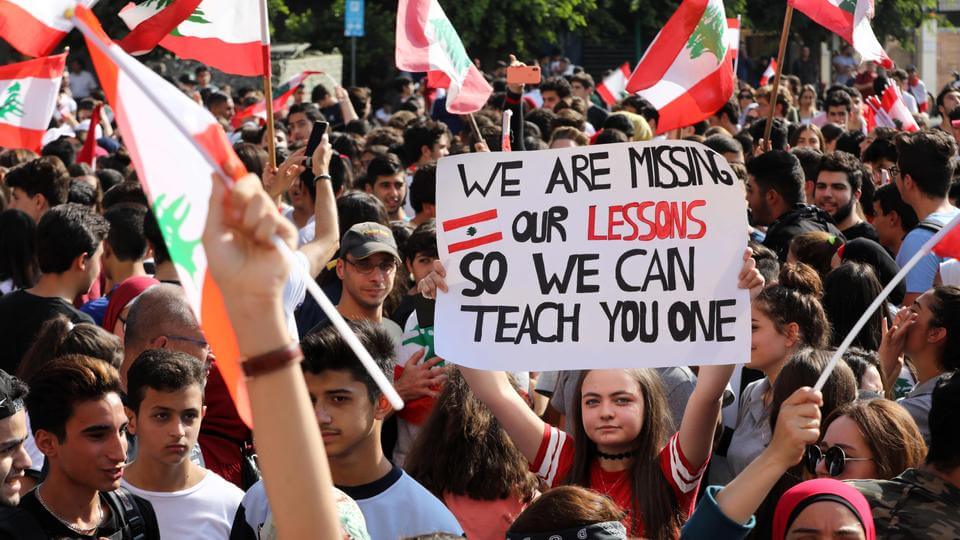

On Tuesday, the Arakan army released 25 people that it seized from a ferry in the war-torn Rakhine State on October 26, according to a spokesperson from the armed ethnic group. The civilians were each given the equivalent of $10 USD for travel expenses, and their personal items returned. The 25 people were among 168 taken from the ferry, resulting in a total of 150 freed since the seizure. Of the 18 remaining hostages, it is unknown how many are still alive. A Rakhine police spokesperson said this week that the suspects from the Arakan Army will face trial under the Anti-Terrorism Law.
The 10 ethnic armed groups that have signed the Nationwide Ceasefire Agreement (NCA) have yet to agree on whether to convene a Joint Implementation Coordination Meeting (JICM), the highest meeting of the national peace process. The meeting, which is usually attended by top government and military officials as well as the 10 groups, has been indefinitely postponed due to friction between the NCA signatories at an event marking the NCA’s fourth anniversary last week.

A Cambodian opposition leader, Mu Sochua, has been detained in Malaysia this week whilst on her way to Cambodia. The Malaysian Prime Minister announced that Sochua will be deported and will not be able to enter her home country. Sochua’s failed efforts to return to Cambodia indicate the likely outcome of fellow opposition leader Sam Rainsy’s attempts to re-enter the nation. Rainsy’s upcoming return to Cambodia has put officials on edge, resulting in the deployment of 20,000 troops; extreme precautionary measures by the Cambodian government have cast doubt on Rainsy’s ability to enter the country.
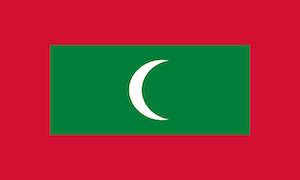
Maldivian Chief Justice Ahmed Abdulla Didi has denied threatening to fire the Supreme Court’s secretary-general, a day after a judicial watchdog launched a probe over Abdulla’s alleged ethical misconduct. The Chief Justice is accused of ordering Dr. Hussain Faiz not to comply with new rules formulated by the Department of Judicial Administration. The DJA – which is tasked with management of the courts – was previously under the direct control of the Supreme Court.

Fifteen people were killed by gunmen in southern Thailand this week, marking one of the bloodiest attacks in recent years. The attack took place at a security checkpoint and attackers utilized bombs, nails and M-16 rifles. No group has claimed responsibility for the attack, though it was likely carried out by an extreme separatist group seeking autonomy in the southern regions. Consistent violence between separatist groups and Thai government forces has plagued Thailand since 2004 and has resulted in the deaths of thousands over the past decade. Though the issue has not received extensive international coverage, the battle for secession is thought to be the deadliest conflict in South East Asia at the moment.
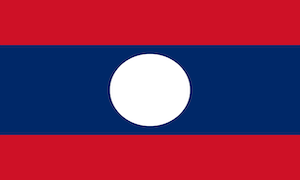
Laos has invited a top Chinese political advisor to visit the country, likely in aims of securing funding for increased construction in the country. Laos has continuously pushed to improve infrastructure, though the government has been criticized for ignoring the potential for environmentally damaging repercussions. The country has reached out to corporations in other nations such as Vietnam and China to hold shares in major infrastructure projects.

On Tuesday, Vietnamese police made another arrest in connection with the death of 39 Vietnamese nationals found in a truck. Officials have painted a picture of where Vietnamese nationals were traveling to Russia from Vietnam before being smuggled into Europe. Only a handful of identifications have been determined, adding to the anguish of villagers in two Vietnamese provinces who suspect their loved ones are among the dead. Nguyen Huu Cau, chief of police in the province of Nghe An, said one of those arrested lived in Russia and is accused of collecting thousands of dollars from migrants who then traveled to Russia before he allegedly smuggled them to Germany and then to a third country – in this case, the United Kingdom.
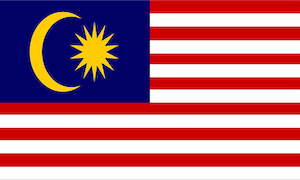
The Southeast Asian countries of Malaysia, the Philippines and Indonesia still anticipate a protracted fight with ISIL (the Islamic State of Iraq and the Levant), even after the death of its leader Abu Bakr al-Baghdadi. Ayob Khan Mydin Pitchay, the Malaysian Chief of Counterterrorism, shared that “it’s good news, but his death will have little impact here as the main problem remains the spread of the Islamic State ideology.” He shared that the spread of the Islamic State ideology is perpetuated via Internet, where ISIL holds a powerful influence.
Malaysia has already arrested 400 people suspected to have links with ISIL. The country remains on high alert as fears that Iraqi and Syrian ISIL supporters fleeing their countries may exploit the “porous borders” of Southeast Asian countries: Malaysia, the Philippines and Indonesia.

On Thursday, North Korea tested “super-large multiple rocket launchers.” North Korean leader Kim Joung-un shared his satisfaction and praised the scientists that built the weapon. The weapons test publicly demonstrated North Korea’s weapon progression, all while relations with the US stay stagnant. The launch is also seen to undermine future talks with the US, because North Korea’s “escalating behavior”.

This Friday, vigils were held in remembrance of the Hong Kong protestor who died during a demonstration. Twenty-two year old Alex Chow fell off a parking garage during a police raid of protests, leading many to think he was trying to get away from tear gas. The death of the student has caused outrage and further heightened tensions in Hong Kong.
On Thursday, students of the Chinese University of Hong Kong staged a march before the university’s graduation this week, expressing discontent with China’s refusal to meet the five demands of protestors. Wearing masks and chanting “Five demands, not one less”, the students echoed the sentiments of the continuous demonstrations in Hong Kong. Though the protestors were nonviolent, a mainland Chinese student met the demonstrators with a knife whilst singing the Chinese national anthem. Though the Chinese student was removed by university security, the interaction provided a look into the tension between Hong Kongers and mainland Chinese people.
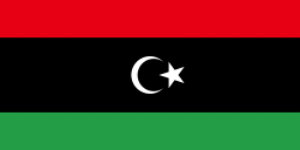
This week, Francesca Mannocchi, a correspondent for The Guardian, visited and reported on a Libyan migrant detention camp. The conditions reported were stunning. Even though the EU has committed more than €110m for improving conditions in Libyan migrant detention camps, much remains unchanged. Triq-al-Sikka is a migrant detention camp in Tripoli, which holds 300 men. Here, out of the six toilets provided three were “blocked with sewage”. Likewise, stained mattresses placed on dirt floor provided the only means for these men to sleep. Migrants could not even contemplate escaping, because they did not own shoes to do so. In this detention camp, men have little hope for improved and humane living conditions. As Mannocchi entered the camp, one man sternly greeted her by starting, “Welcome to hell.”

Sudan has launched its first satellite in a partnership with China this week. The satellite, which was launched from the Chinese province of Shanxi, aims to collect information on potential resources that would boost military capabilities for Sudan. While monitoring is currently based in China, it has been announced that monitoring responsibilities will move to Sudan in the coming months.
The Sudanese Prime Minister, Abdallah Hamdok, visited the displaced persons camps in Darfur. Hamdok’s visit to the camps indicates a potential change in the ways in which the Sudanese government deals with mass displacement. Roughly 1.5 million people remain displaced in the region following over a decade of conflict led by former leader Omar al-Bashir. The Darfur region saw attempts of ethnic cleansing and extreme suppression by government militias under al-Bashir. Hamdok has promised peace and stability to the victims of the Darfur conflict.

Iran faces extreme turbulence this week as the U.S. announced sanctions against the inner circle of Supreme Leader Ayatollah Ali Khamenei, including one of his sons. The sanctions were announced on the 40th anniversary of the seizure of the American embassy in Tehran, and amid crumbling nuclear negotiations between Iran and the U.S. Additionally, a magnitude 5.9 earthquake struck the country early Friday morning, resulting in at least 5 deaths and an unknown number of injuries.
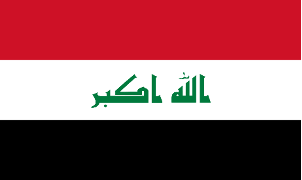
It has been reported that at least 3 people were killed in anti-government protests this week, while 17 others have been injured. The mass protests in Baghdad have resulted in the killings of at least 97 civilians by security forces using live ammunition. Netblocks in the region have made communication more difficult and protestors have voiced a fear of isolation whilst government-led killings take place. Despite the threat of violence, demonstrators have continued to protest by the thousands and have continuously pushed for extreme systemic change in Iraq. Iraqi protestors have also shown contempt for Iran, hitting pictures of Ayatollah Ali Khamenei with shoes, throwing fire bombs at an Iranian consulate and destroying the buildings of organizations associated with Iranian influence.

Approximately 1000 U.S. troops are now in Syria defending Syrian oil fields, in response to orders from President Trump. The military decision, coming just days after American troops were ordered to evacuate Syria and leave Kurdish forces to defend themselves against the Turkish invasion, has perplexed U.S. officials. This Thursday, an internal report by the top US diplomat in northern Syria, William Roebuck, was leaked to the New York Times. In the report, Roebuck complains that “we didn’t try” to deter the Turkish incursion, which has killed hundreds of civilians and displaced hundreds of thousands. President Trump’s claim over Syrian natural resources has angered the Syrian government and its ally, Vladimir Putin.

Lebanon is entering its third week of nationwide protests. Protesters have now taken to road blocks as their main form of opposition. By blocking the main entrance to Beirut, they aimed to impede “the government from functioning properly.” Roadblocks have sprung up elsewhere in the country as well. These roadblocks range from a pile of rocks impeding cars to “giant parties attended by hundreds of people with tents and music.” Security forces have been successful in unblocking the main road to the capital and the road that links Beirut to Northern Lebanon. However, protesters have expressed their unwillingness to stop. They will continue to build roadblocks until the government listens and acts on their demands, which includes a complete overthrow in the Lebanese sectarian political structure.
In response, the Lebanese President, Michel Aoun, has recently called on the protesters to have patience for his reforms to be implemented. Aoun has “pledged to move away from the sectarian-based political system to a civil state.” However, anti-government protesters still believe his reforms to be inadequate.

The Zimbabwean government has responded to two months of strikes by a group of doctors by firing 77 of the protesting individuals. The doctors have been striking due to low wages and have been making under $100 USD per month. Zimbabwe, which is currently in an economic crisis, has been dealing with high rates of inflation and a total collapse of the financial system. As conditions in the country have continued to deteriorate, civil servants have taken to the streets to protest consistently declining pay. The workers were not deterred by the firing of doctors, and many have voiced that they felt there was no choice but to demonstrate.

For the first time, Brazil has voted against the “United Nations resolution condemning and calling for an end to Washington’s embargo on Cuba.” The only other countries to vote against this resolution where the United States and Israel. Brazil has changed its stance on Cuba, likely because of the “recent wave of Latin American protests and the left’s return to power in Argentina.” Brazil’s government is headed by a far-right president and fears of Latin American leftest protests spreading to Brazil has influenced their decision to vote against the resolution.

This week, a Guardian correspondent assessed the living conditions for Venezuelan refugees in Maicao, Colombia. As Colombia struggles to keep up with the influx of refugees, Venezuelans taking refuge in Colombia face worsening living conditions and struggle for survival. Axleny Machado, a Venezuelan refugee in Maicao, Colombia, only makes €4 a day selling cigarettes, coffee and sweets in her cart that she rents for 90p a day. After work, she and her mother are forced to sleep in the bus terminal on top of cardboard. Her phone and passport have already been stolen, making her and her mother more trapped than ever. This situation is, sadly, not unique to her. A United Nations assessment found that almost half of Venezuelan refugees in Maicao “were living on the streets.”

The United States has sanctioned 3 Nicaraguan officials, citing human rights abuses, election fraud and corruption. Since 2017, the United States has sanctioned 14 Nicaraguan officials; the sanctions have directly targeted key members of the Ortega regime in aims of destabilizing the President’s governmental support structure. Sanctions dictate that the Nicaraguan officials are unable to do business with any U.S. entity.
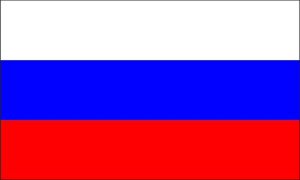
This Friday, Russia and Turkey carried out their first joint patrol in northeastern Syria. The joint Russian and Turkish patrols aimed to implement the deal struck between Russia and Turkey. The deal reached “forced Kurdish fighters to evacuate from a so-called ‘safe-zone’ on the Syrian side of the border.” Two days before the joint patrol, Turkey announced that not all Kurdish fighters withdrew from the ‘safe zone’. During the patrol, it was reported that 18 Syrian government soldiers had been captured and turned over to the Russians. They are now being detained in Syria near the Turkish border. Russia has yet to share who is responsible for the detainment of these individuals, but it is clear that Russia has helped coordinate the move.

This week, Judge Saliann Scarpulla ordered President Trump to pay $2m “for missing funds from his charity to finance his 2016 political campaign.” In the settlement agreed upon, it also called on Trump to acknowledge his wrongdoing and faulty actions. His three oldest children, Donald Trump Jr., Erick Trump, and Ivanka Trump were also involved in the scandal. All three children will be required to enter training on how to properly direct charitable organizations. So far, no criminal charges have been filed.